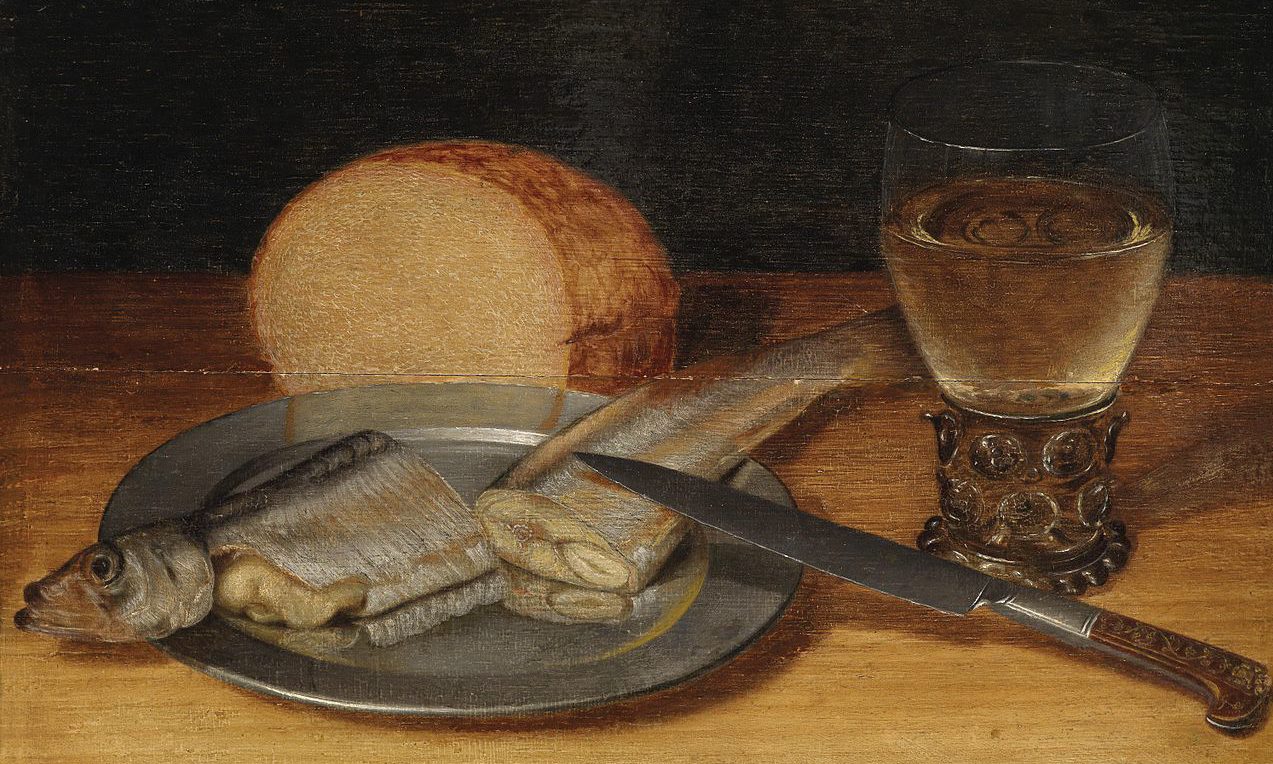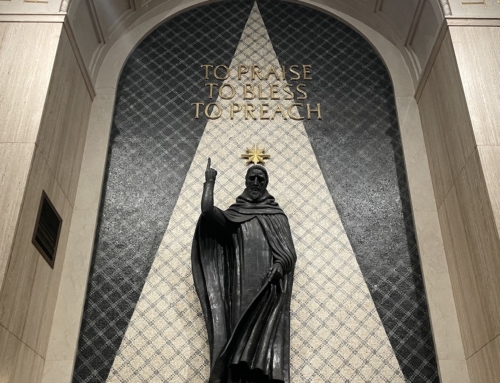Sacrifice is tough. It is even more so because it’s hard to make sense out of why we should bother in the first place. As one who also struggles with sacrifice, I turned to a trustworthy brother (Thomas Aquinas) for some clarity on the matter.
We usually take “sacrifice” to mean “giving something up” or “buying God off,” or something like that. Sacrifice is really an outward sign of the inner offering of our souls to God. It’s really something positive and good. Here’s a way to come at the issue:
Any man should know that he’s subject to a higher being. I only have to look at how messed up and miserable I am, and I realize that I need help and direction from someone above me. Let’s call him “God.” It’s only natural that I want to give honor and submission to the one who can help me. And while it’s not so bad just to sit and think about how great God is, we’re the kind of beings that need to use outward signs to express big truths like that. So I need concrete ways to show God honor and prove that I trust in his plans over my own. These concrete expressions are called sacrifices.
We call it a sacrifice especially when it concerns external goods. On one hand, we can use external goods to honor God by sharing them with our neighbor: God, like us, is delighted when those he loves are made happy. But what about when I’m asked to give up meat, take a cold shower, or something like that, which seems to have absolutely no reason to it? Where’s the love? What am I “expressing” by those sacrifices?
Most simply, I am saying to God, “I want to serve you for your glory and depend upon you for my happiness, rather than on this [insert good thing here].” Maybe we’re talking about the last bite of a brownie, the comfort of our favorite seat, or the pleasure of some fun distraction. Whatever it is, the sacrifice is our way of freely expressing that God is all we need, even though he gives us all sorts of good gifts as well. The outward offering can be big or small: what matters is the inner offering of our souls to God. So Thomas is totally on board with Therese of Lisieux’s “little way.”
But we still can’t get rid of the external. Because we’re the kind of being that needs to express itself with outward signs, we don’t tend to hold fast to this internal meaning if we don’t seal it by making sacrifices to God. We need these outward offerings, or we start to forget about the inner offering. Sacrifices are not only a great way but an essential way of turning our lives to God.
And you should always—always—remember that God is close to all who call on him: if you offer your heart to him, he will give it back to you transformed.
✠
Image: Georg Flegel, Fastenstillleben







